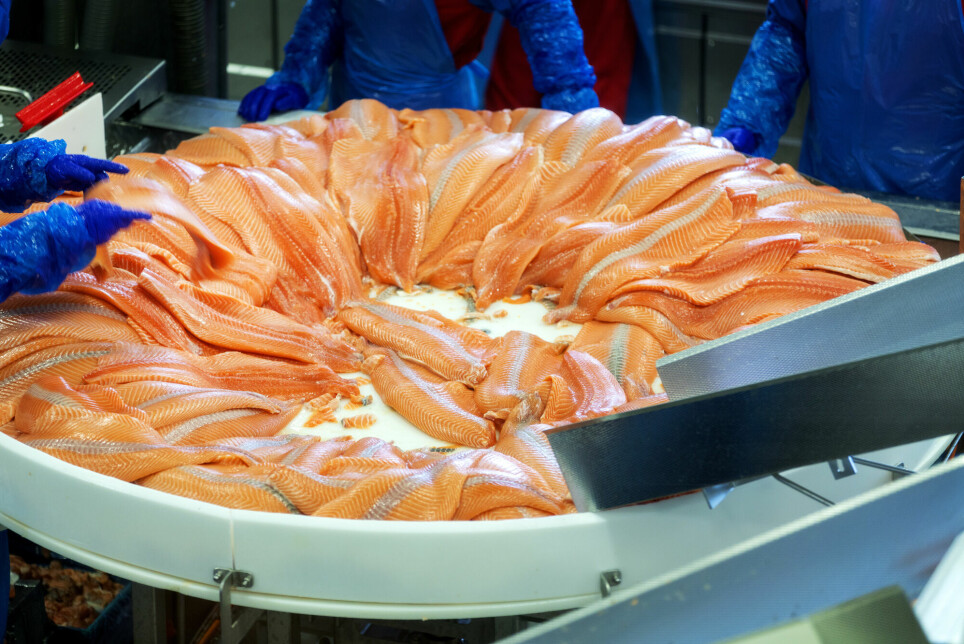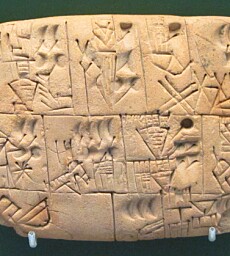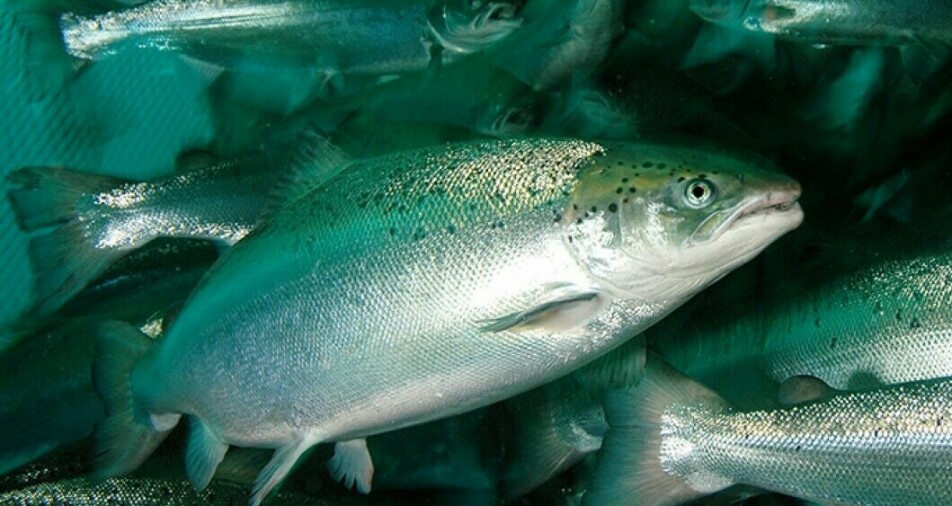
Ground rent: Norway’s new salmon tax turns economic textbook models into reality
The Norwegian Finance Minister Trygve Slagsvold Vedum believes the introduction of a salmon tax will equalize differences between Norwegians. But some economists warn against unintended consequences.
At the end of September, the Norwegian government announced that it will introduce ground rent on wind power and the aquaculture industry.
Companies that produce salmon, trout and rainbow trout will have to pay 40 per cent in what is called ground rent tax, or what has popularly come to be called a salmon tax.
The tax will provide an extra NOK 33 billion in income from fish farming and wind power.
The news met with strong opposition from the industry, and the share prices of listed companies plummeted.
Cheered by some
The sharpening of these taxes, on the other hand, led to cheers among many economists in Stavanger at the recent KåKånomics Festival, the largest economics festival in the Nordic countries.
“Ground rent tax is something that is right out of economics textbooks,” said Øystein Thøgersen, an economics professor and rector at NHH Norwegian School of Economics.
This is the best tax, if it is properly designed, he said.

Oil and hydropower are taxed this way
But what is ground rent tax? For non-economists, the term is not self-explanatory. It essentially means a rental fee for the use of natural resources.
Ground rent was introduced to the Norwegian oil industry when it was in its infancy. Oil companies pay a fee of 78 per cent to the state, including the normal corporation tax.
Norway is alone among oil nations in enacting this tax. The money from the tax eventually laid the foundation for the Oil Fund, the Government's pension fund — abroad.
Hydropower is also subject to ground rent.
Many observers have long advocated that the aquaculture industry should also pay for their use of society’s natural resources to produce highly profitable salmon.
‘A day of joy!’
Karen Helene Ulltveit-Moe, an economics professor at the University of Oslo, is one of the economists who is celebrating the decision.
“It was a day of joy for Norwegian society. It was incredibly great that this proposal came,” Ulltveit-Moe said during one of the debates at the KåKånomics conference.
In 2019, Ulltveit-Moe chaired the aquaculture tax committee which investigated taxation of the aquaculture sector.
The majority in the committee proposed introducing a ground rent tax of 40 per cent on fish farming. This is the same rate as for power production. A minority wanted to keep the current system.
“At the start, salmon farming was considered a low-income industry, and each person could only buy one licence,” Ulltveit said at the KåKånomics conference.
Foreign shareholders do not pay tax
A few companies have since grown into large groups by buying up lots of licences, or production permits.
“These major players are listed on the stock exchange. Foreigners own 40 per cent of these companies. They do not pay dividend tax,” Ulltveit-Moe said.
When the aquaculture tax committee came up with its recommendation, it unsurprisingly led to great opposition in the coastal fish farming industry.
“The lobbying activity was enormous, and it made me worried about our democracy,” Ulltveit-Moe said.
But the proposal was shelved by previous Prime Minister Erna Solberg’s conservative government.
Aquaculture industry disappointed
Ground rent tax for the aquaculture industry is a natural follow-on of hydropower and petroleum taxes, says Finance Minister Trygve Slagsvold Vedum, from the Centre Party.
“But I understand that the aquaculture industry is disappointed,” he said when he visited the KåKånomics conference.
Many other residents along the coast are also sceptical of the ground rent tax. Four out of ten voters fear it will affect the development of the coast, according to a poll conducted by Infact for Fiskeribladet.
Thirty-two per cent answered that a ground rent tax will have positive consequences for the coast, while 26 per cent said they did not know.
People have even marched in torchlight processions against the tax in several of the coastal municipalities.
Seven out of ten respondents in Oslo are positive to the ground rent tax.
Affects large companies and shields small ones
Introduction of the ground rent tax will redistribute resources in Norway.
The crisis packages during the pandemic and the nation’s recent electricity crisis mean that the government have to spend less money from the Oil Fund, otherwise prices will increase even more sharply than they have, Vedum said.
Workers who earn the least are hit hardest by increased food prices and high electricity prices.
Those who have a lot thus have to contribute more. This will also lead to less uncertainty in troubled times, Vedum said.
“We prioritize people with low incomes. That is why we are increasing the tax on everyone who earns over NOK 750,000 and will introduce the ground rent tax,” he said.
The new tax income will be distributed between host municipalities and the state. Vedum believes this is fairer for municipalities that do not have these kinds of natural resources.
Base deduction
NHH Norwegian School of Economics rector Thøgersen led a debate during the conference and pointed out that the ground rent tax turns textbook models to reality.
The government proposed a minimum deduction of between 4,000 and 5,000 tonnes of produced fish.
For hydropower plants, the point at which the tax takes effect has resulted in many power plants remaining small, because they have to pay ground rent tax if they expand.
The Ministry of Finance has gone through many rounds on this, Finance Minister Vedum said.
“We take from the large companies and protect the little ones,” he said.
This will strengthen the competitive advantage of smaller fish farming companies. But that could come at a cost, he said.
“What is important now is that it there is a public inquiry process. We will listen to the inputs we get,” Vedum said.

Will this weaken production?
Sudden changes in conditions are not good for the economy, Thøgersen suggested.
Ulltveit-Moe also believes it is important to continue to give companies some motivation so they do not cut back on production.
“But it is important to take into account the fact that these companies have not had to pay ground rent tax until this proposal,” she said.
Economics professor Torfinn Harding at the University of Stavanger Business School is not quite so enthusiastic.
“I basically agree that we, to a greater extent, should tax in ways that are not distortionary,” he said to sciencenorway.no.
For example, a tax on earned income will typically make people less inclined to work, which could thus decrease the number of working hours that create value.
“The mantra now is that ‘since a ground rent tax is neutral, it's just a matter of putting it in place’,” he said.

Not just exploitation of resources, but individual effort
Harding believes the proposed rate of 40 per cent has not been discussed enough and that the government's proposal lacks sufficient supporting information.
Strong salmon prices and favourable exchange rates have certainly made the industry very profitable in recent years.
But fish farming is clearly not just the exploitation of a natural resource the way hydropower is, he said.
“Much of aquaculture’s success is probably also due to individual efforts and innovations that have cost investors a lot to develop,” he said.
It is unclear how large a proportion these factors are in relation to the use of natural resources, and which should consequently be subtracted from the calculation, he says.
New investments may be dropped
The aquaculture industry has also partly been rewarded for taking high risks.
“The state may have made a mistake by not having introduced ground rent tax to the industry earlier. But when the tax is introduced suddenly, it can disrupt new investments because it creates uncertainty,” he said.
The tax may affect future investments. But these kinds of signals from the industry can also be attempts to influence politicians, he said.
Stability important
Harding agrees with what Thøgersen says about sudden changes in conditions not being good for the economy.
“Stability and predictability are important. It is problematic that the ground rent tax will be introduced to existing licences, and not just on new ones,” Harding said.
It’s possible to think of taxes as a kind of contract. If one party suddenly deviates from what the other party perceived as an agreement, it will be more difficult to write a new contract.
“In the same way, investors will hold back if they fear sudden changes in the framework conditions,” Harding said.
For the record: Economics professor Torfinn Harding is involved in investigative work for Seafood Norway through its tax committee, established in spring 2022, where Harding sits as an independent member and social economist.
He is also involved in the NCS2030 research centre and the academic agreement between NHH and Equinor.
Translated by Nancy Bazilchuk
Reference:
Karen Helene Ulltveit-Moe et al: Taxation of aquaculture activities (in Norwegian). "Havbrukskateutvalget", NOU 2019:18.
———
Read the Norwegian version of this article at forskning.no
------




































